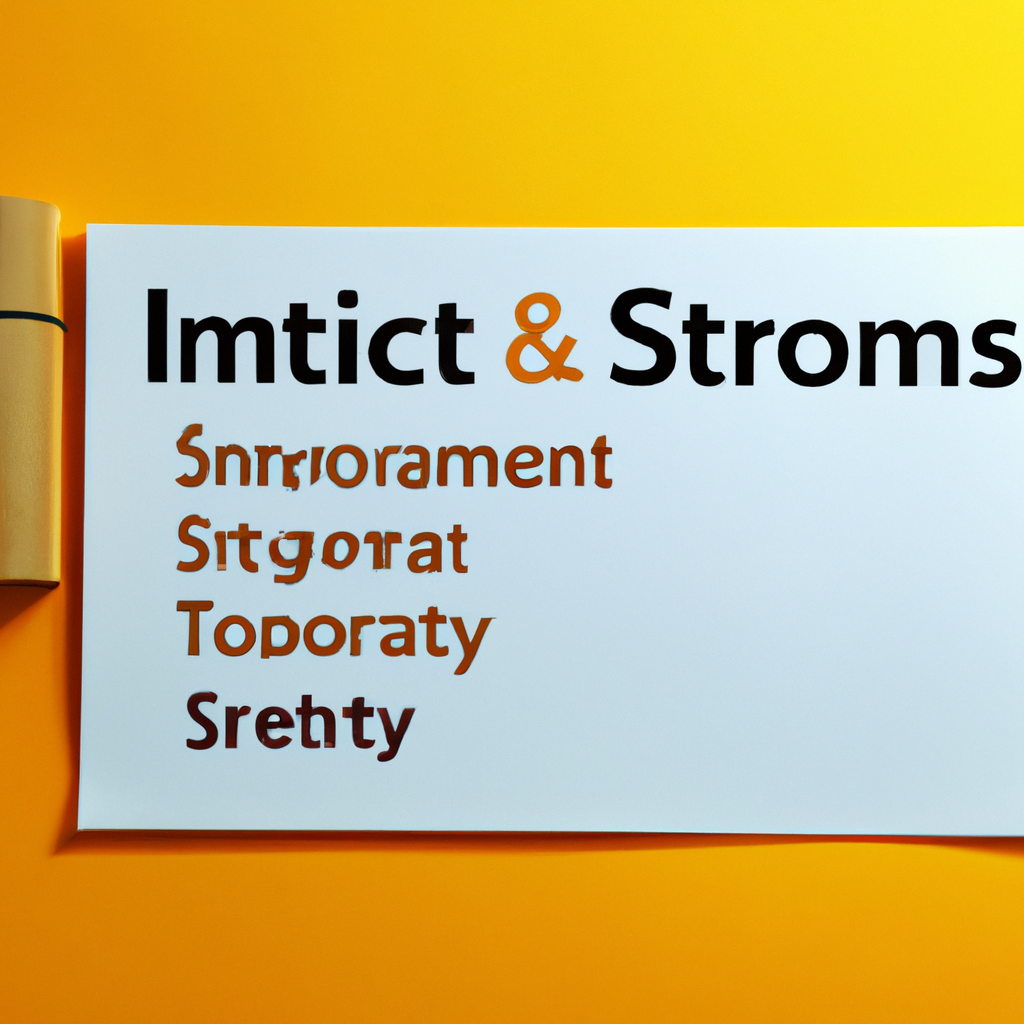Short-term Investment Strategies
Introduction
Investing is a crucial aspect of personal finance management, and it plays a vital role in achieving financial goals. While long-term investments are generally recommended for building wealth, short-term investment strategies can also be beneficial for individuals looking to make quick gains or meet immediate financial needs. In this article, we will explore some effective short-term investment strategies that can help investors maximize their returns.
1. High-Yield Savings Accounts
One of the simplest and safest short-term investment strategies is to deposit your funds into a high-yield savings account. These accounts offer higher interest rates compared to traditional savings accounts, allowing your money to grow over time. While the returns may not be as significant as other investment options, the advantage lies in the low risk associated with these accounts. They provide easy access to your funds, making them suitable for short-term goals or emergency savings.
2. Certificates of Deposit (CDs)
Certificates of Deposit (CDs) are another popular short-term investment option. CDs are time deposits offered by banks or credit unions, where you agree to keep your money locked in for a fixed period, typically ranging from a few months to several years. In return, you receive a higher interest rate than regular savings accounts. CDs are considered low-risk investments as they are insured by the Federal Deposit Insurance Corporation (FDIC) up to $250,000 per account. They are suitable for individuals looking to earn a slightly higher return on their savings without exposing themselves to significant market risks.
3. Money Market Funds
Money market funds are mutual funds that invest in low-risk, short-term debt securities such as Treasury bills, certificates of deposit, and commercial paper. These funds aim to maintain a stable net asset value (NAV) of $1 per share, making them a relatively safe short-term investment option. Money market funds provide liquidity and can be easily bought or sold, making them suitable for investors who require quick access to their funds. However, it is important to note that while money market funds are considered low-risk, they are not insured by the FDIC.
4. Short-Term Bond Funds
Short-term bond funds invest in fixed-income securities with shorter maturities, typically ranging from one to five years. These funds aim to provide steady income while minimizing the interest rate risk associated with longer-term bonds. Short-term bond funds can be an attractive short-term investment option for investors seeking higher returns than traditional savings accounts or money market funds. However, it is important to carefully assess the credit quality and interest rate sensitivity of the underlying bonds before investing in these funds.
5. Peer-to-Peer Lending
Peer-to-peer lending platforms have gained popularity in recent years as an alternative short-term investment strategy. These platforms connect borrowers directly with lenders, eliminating the need for traditional financial institutions. As a lender, you can earn interest by lending money to individuals or small businesses. While the returns can be attractive, it is important to thoroughly evaluate the creditworthiness of borrowers and diversify your investments across multiple loans to mitigate the risk of default.
Conclusion
Short-term investment strategies can be an effective way to grow your money or meet immediate financial needs. However, it is important to consider your risk tolerance, liquidity requirements, and investment goals before choosing a short-term investment option. By diversifying your investments and conducting thorough research, you can make informed decisions and maximize your returns in the short term. Remember, always consult with a financial advisor to ensure your investment strategy aligns with your overall financial plan.
